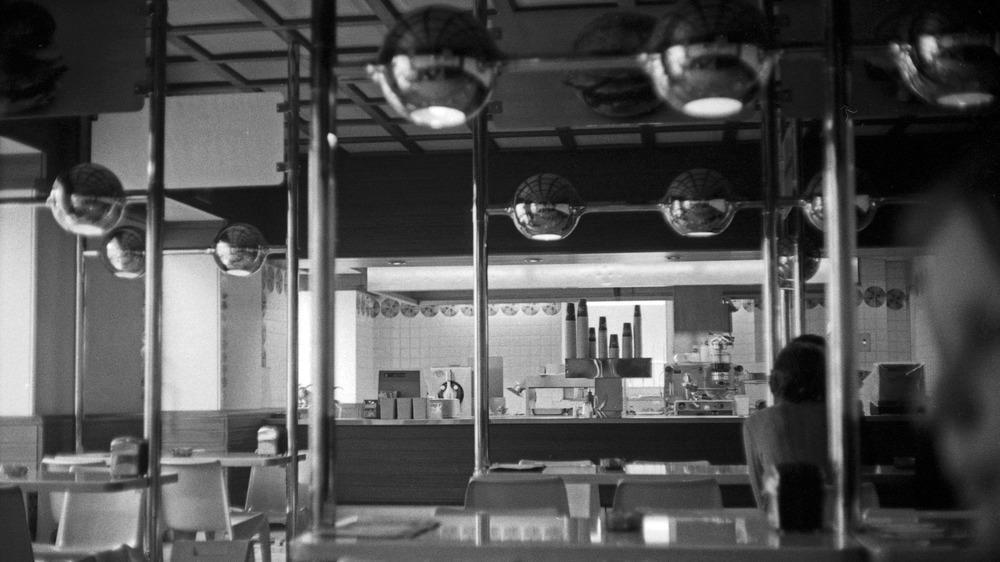Why The Burger Chef Murders Still Haven't Been Solved
The story of the Burger Chef murders is harrowing: on November 17, 1978, four young employees working at a branch of the now-defunct fast-food chain Burger Chef in Speedway, Indiana were kidnapped as part of a robbery. The bodies of all four — assistant manager Jayne Friedt (20), and staff Ruth Ellen Shelton (18), Daniel Davis (16), and Mark Flemmonds (16), per ABC News – were later discovered by walkers 20 miles from the restaurant, according to Indianapolis Monthly. Shelton and Davis had been executed together, with gunshots to the back of the head, while the body of Friedt, which was discovered nearby, showed that she had died from brutal stab wounds. Flemmonds had died of asphyxiation after receiving a blow to the head with a blunt object. Seemingly, all four had lost their lives for the sake of $581. The circumstances of the murders, their heartlessness, as well as the youth of the four victims made the Burger Chef murders front-page news, a crime so heinous that one would expect the police investigating the case to do everything in their power to bring the perpetrators to justice.
But sadly, things just didn't go that way. Leaving aside the fact that 1978 was a very different time in terms of police technology — surveillance devices such as security cameras were minimal compared with today, while the use of forensic evidence was in its infancy — the investigation into the Burger Chef murders can be described as nothing short of a disaster.
The police bungled the Burger Chef murders
That no one has ever been brought to justice for the murders of four Speedway teenagers, a crime that horrified local citizens and made headlines around the world, is in many ways the result of the failures of the Indiana State Police and their handling of the investigation into the missing Burger Chef employees in those crucial hours after Friedt, Shelton, Davis, and Flemmonds were reported missing.
According to Indianapolis Monthly, police were informed of the disappearance of the four Burger Chef employees from their workplace shortly after midnight on November 18, but failed to recognize that the employees' absence might indicate that they were in mortal danger. Instead, police suspected the youngsters themselves of embezzlement; that they had ditched their jobs, taken off the with money, and gone "joyriding."
As such, the Burger Chef was allowed to be cleaned and reopened with other staff the next day, ultimately destroying any vital evidence that may have given a clue to the events of November 17. "They didn't process it as a murder; they didn't know it was a murder," detective Virgil Vandagriff, who later worked on the case, told Indianapolis Monthly. "Police didn't have a clue what was going on at the restaurant. They kind of messed up the crime scene."
It was two days after their kidnapping that the bodies of the four victims were found, but by then, it was too late. Any evidence that investigators might have gleaned from the Burger Chef had already been contaminated.
Four decades of cold leads
Just as the failures of that initial police investigation are infuriating, the subsequent leads that detectives have chased in the decades since the horrifying 1978 murders of the four Speedway youth are, even today, enough to drive anyone to frustration. Researching the case brings home how painful it must be for the friends and families of the victims who even today are desperate for answers. Theresa Jeffries, the sister of victim Ruth Shelton, was still appealing to the public for information as recently as 2018, according to ABC News.
With no clear evidence of what exactly happened in the Speedway Burger Chef that night, detectives were reduced to speculation. "The prevailing general theory among authorities was that this was some sort of robbery gone bad: One or more of the employees might have recognized one of the assailants or put up a fight, and the rest of the workers had to be eliminated. There was a rumor that at least one of the victims had been involved with drugs, possibly even selling marijuana out of the Burger Chef," says Indianapolis Monthly, while huge rewards were posted for any information related to the crimes.
A number of suspects have been identified, including one, Donald Forrester, a long-term prisoner who originally offered a detailed and believable confession, before eventually withdrawing his cooperation with the police, according to the American Crime Journal. He has since died.
The case is still open.


